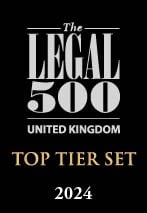Re PGH Investments Ltd [2021] EWHC 533 (Ch) – Disputed debts and winding up petitions in light of the Corporate Insolvency and Governance Act 2020 –
Disputed debts and winding up petitions in light of the Corporate Insolvency and Governance Act 2020.
Philip Gale acted for the Applicant in Re PGH Investments Ltd v Sean Ewing [2021] EWHC 533 (Ch).
The case raises two practice points concerning winding-up petitions in light of the Corporate Insolvency and Governance Act 2020.
First, where the petition is on foot and the debt is disputed, can the company still apply for an injunction as it would have done before the 2020 Act? Or do the restrictions on advertisement of winding up petitions imposed by the Act mean that an injunction application is no longer necessary or indeed pointless? The judge observed that, whilst the Act “has removed the immediate need for a company served with a winding-up petition to seek an injunction to restrain the advertisement of the petition” [para 33 of the judgment], there was “no reason why this should prevent a company from applying at an early stage for the strike out and/or summary dismissal of a petition if it wishes to do so” [para 34].
Second, in terms of the “coronavirus test”, whilst it was sufficient for a company to show it had suffered an indirect financial effect as a result of the pandemic, the company nevertheless had to adduce sufficient evidence of the effect it was seeking to show. General references to the impaired investment climate, for example, would not be enough to show that the inability to find a buyer for shares was due to the pandemic. Also of note is the judge’s observation [at para 77] that simply because a debt has been incurred during lockdown with a payment date during lockdown, does not mean (without more) that a petitioner will be able to say that the company would have been unable to pay its debts in any event.
Full judgment available below.

